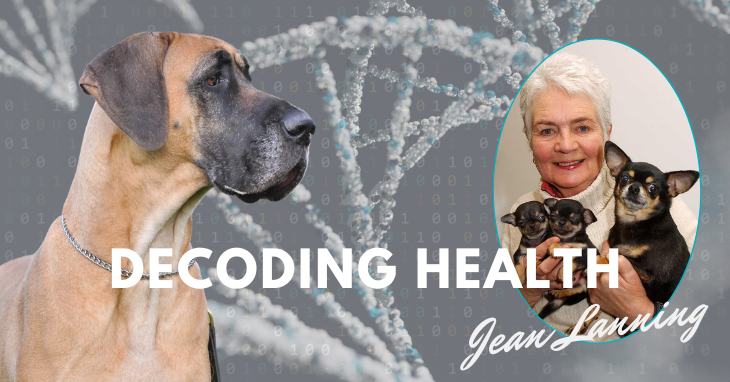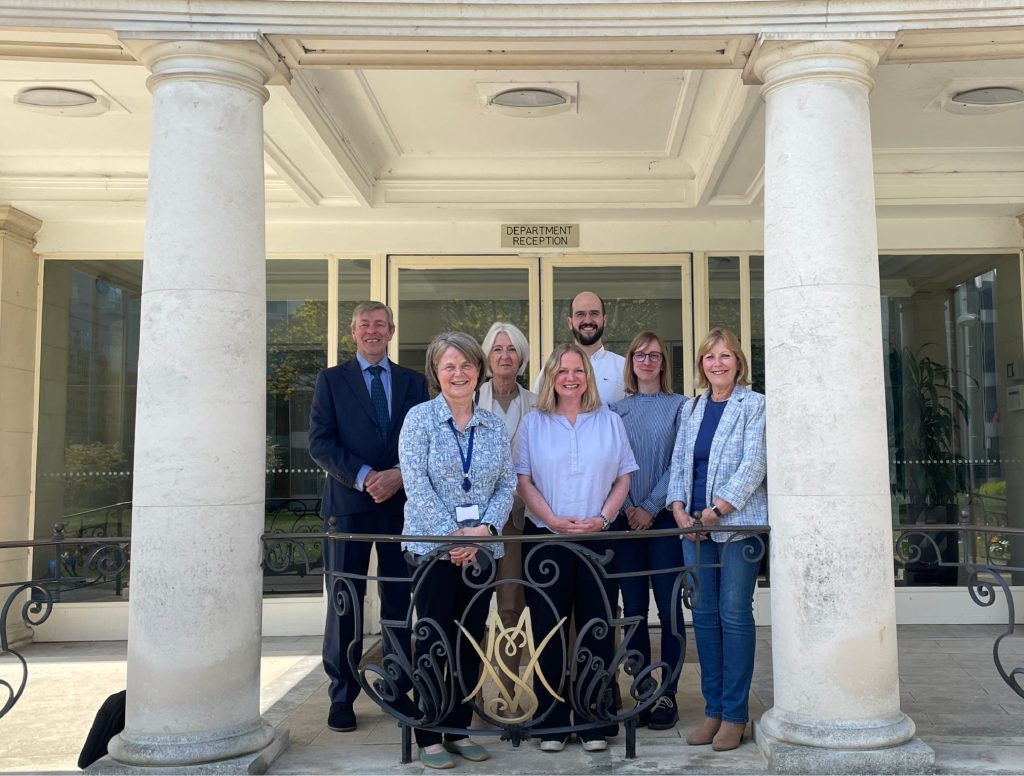
The trustees of the Jean Lanning Foundation are delighted to announce a major grant to the Canine Genetics Centre (CGC) at Cambridge University to fund exciting new research.
Dr Cathryn Mellersh has linked up with Dr Alex Cagan to collaborate on a joint proposal entitled “Decoding health: The Domestic Dog as a Model for Understanding Human Disease.”
Visiting the University on Friday 11th April, Lee Janaway, on behalf of the Foundation trustees, said “The recent Our Dogs survey has underlined the huge support of dog people for the Canine Genetics Centre so the trustees – Christina Bailey, Caroline Kisko and I – are thrilled to be able to make this happen. Researchers from the field of human ocular research at world renowned institutions, namely UCL and Moorfields Hospital, are supporting the work giving huge credibility to Dr Cagan and Dr Mellersh.”
The grant comprises two work packages of research that collectively promise to deliver significant improvements in our understanding of risk factors for both human and canine health.
The first work package, Dogs as Genomic Sentinels for Environmental Impacts on Human Health, outlines a transformative approach to understanding the impact of environmental factors on health, by leveraging the unique relationship between humans and dogs. Dogs share our environments, including exposure to similar environmental pollutants and lifestyle factors. But crucially they age more quickly than humans and experience accelerated disease progression, which makes them ideal candidates for understanding how environmental exposures over a lifetime influence the accrual of somatic mutations and the development of disease, including cancer.
The second work package, Inherited Eye Disease investigations, will interrogate a whole genome sequence dataset to identify novel genetic variants underlying a variety of inherited canine eye disorders. The dog is a well-established model for the investigation of inherited eye diseases and an unparalleled model for the development of novel gene therapies. Our expectation is that this application will identify novel genetic variants that underpin multiple different canine eye diseases, leading to the development of genetic screening tests to help improve the health of future generations of dogs. In so doing the research will also identify novel candidate genes for parallel human studies and also establish novel models for the potential downstream development of sight-saving therapies.

Central to both work packages is the unique collection of >42,000 DNA samples that the Canine Genetics Centre has amassed over the last 20+ years, collected from >250 different breeds and at all stages of life, from puppyhood through to old age.
Dr Mellersh said: “It is no exaggeration for me to say that this funding ensures the survival of the Canine Genetics Centre over the coming years. I am now able to say that the CGC is secure for the next three years at least, and this will undoubtedly give other funders and donors confidence to invest in the CGC. I am also hugely excited about the research that this funding will enable Alex and I to do; it genuinely will lead to some groundbreaking discoveries that will benefit not only dogs but their human companions as well.”
The Canine Genetics Centre is based at the Department of Veterinary Medicine at the University of Cambridge. The Department is at the forefront of veterinary science and education and is a centre of excellence for teaching and research. The Department is an outstanding environment for world-class research that maintains a portfolio of excellence in veterinary science, fully integrated with the wider University of Cambridge.
 The Jean Lanning Foundation was set up by Jean Lanning in her lifetime with Jean, Lee Janaway and Caroline Kisko as trustees. Jean was a highly respected dog breeder and judge who travelled throughout the world judging and also awarded the Best in Show title at Crufts. On Jean’s death, most of her estate was left to the Foundation and Christina Bailey joined the trustees. The main aim of the Foundation is to support Romsey Hospital in Hampshire (where Jean lived) and the trustees are working closely with the hospital on a major overhaul of the buildings and facilities. In addition, the Foundation is supporting research at the Canine Genetics Centre, due to a collaboration with Dr Alex Cagan that will bring benefits to human health by analysing the DNA samples already amassed at the CGC. This project “Decoding health: The Domestic Dog as a Model for Understanding Human Disease” further emphasises the dog’s role as man’s best friend.
The Jean Lanning Foundation was set up by Jean Lanning in her lifetime with Jean, Lee Janaway and Caroline Kisko as trustees. Jean was a highly respected dog breeder and judge who travelled throughout the world judging and also awarded the Best in Show title at Crufts. On Jean’s death, most of her estate was left to the Foundation and Christina Bailey joined the trustees. The main aim of the Foundation is to support Romsey Hospital in Hampshire (where Jean lived) and the trustees are working closely with the hospital on a major overhaul of the buildings and facilities. In addition, the Foundation is supporting research at the Canine Genetics Centre, due to a collaboration with Dr Alex Cagan that will bring benefits to human health by analysing the DNA samples already amassed at the CGC. This project “Decoding health: The Domestic Dog as a Model for Understanding Human Disease” further emphasises the dog’s role as man’s best friend.

